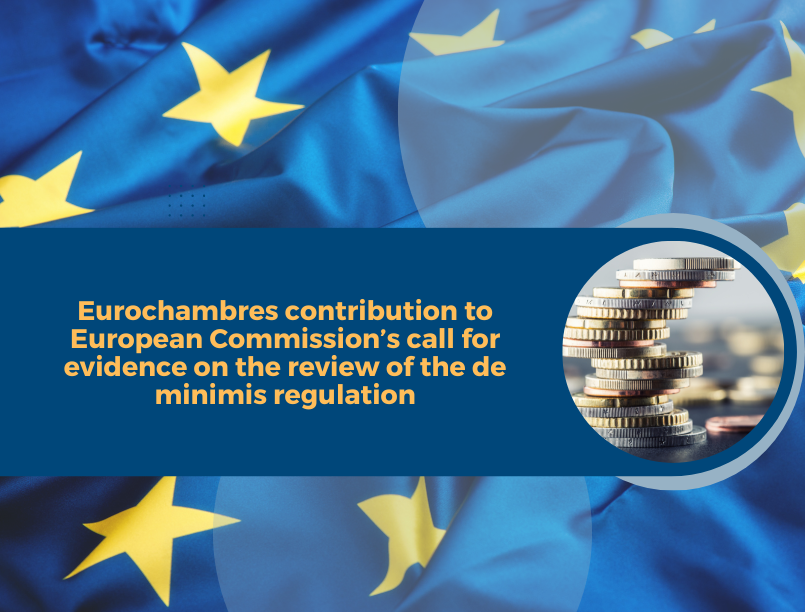Eurochambres contribution to European Commission’s call for evidence on the review of the de minimis regulation
General comments - given the importance of SMEs for Europe’s economic growth, job creation, competitiveness, and innovation, it is crucial to alleviate their financing conditions by allowing them to benefit from the highest aid intensity possible with minimal administrative burdens.
Eurochambres considers the revision of the de minimis regulation as a highly relevant issue for SMEs taking into account the current and future inflationary trends and the need of further development of the European economy which is heavily affected by the energy crisis and the restructuring of logistics.
A thorough impact assessment, public consultation and an appropriate SME test, would allow the Commission to better assess whether Member States and granting authorities have managed to effectively support small companies in the past and steer the state aid efforts in the years to come.
The chamber network understands that a large number of SMEs fail to be granted investment aid for procedural reasons (i.e. failure to respect deadlines) and they are led to ask for a de minimis aid instead. Unfortunately, this is often the only way for SMEs to be granted aid, even though through a less efficient procedure. Therefore, we emphasize the importance for new state aid rules, including the revised de minimis regulation, to be simpler and more easily understandable rules in order for SMEs to have better access to state aid in general.
In designing relief packages, policymakers need to recognise that businesses are facing both liquidity challenges stemmed from deteriorating credit conditions, as lenders grow nervous about creditworthiness in EU markets, and solvency challenges from deteriorating economic conditions, making harder for them to deal with long-term obligations.
Chambers consider that the state aid framework needs to be flexible enough in extraordinary situations that may require the introduction of a fast-track temporary scheme similar to the one that is in place to deal with the impact of the covid-19 pandemic or the Russian invasion of Ukraine.
In order to mitigate potential harm to non-aided firms, and guarantee equity among market players, Chambers advocate for an effective EU state aid control mechanism that guides Member States towards more efficient design, implementation and monitoring of state aid schemes, and a clear path to exit.
